Tales of Kenzera: Zau Tackles Grief As A Metroidvania With Dance-Like Combat And Incredible Music
The game's soundtrack will feature the same choir from the Black Panther movie.
At The Game Awards 2023, Surgent Studios finally revealed what it has been working on: a colorful metroidvania called Tales of Kenzera: ZAU, which uses its puzzles, combat, and bosses to tackle loss and the spiritual journey many take to come to terms with it. Surgent was founded by Abubakar Salim (best-known in the gaming industry for voicing Assassin's Creed Origins' Bayek), who is also voicing Tales of Kenzera's protagonist, Zau. The game is being published by Electronic Arts as part of its EA Originals program and has received help from Critical Role.
Tales of Kenzera is a story within a story--the game itself is a Bantu tale that's being read by a boy lost in his grief over his dead father. You play through that tale, which is about Zau, a young man who makes a bargain with Kalunga, the god of death, to bring his dad back from the dead. There are Inception levels of grief and sons mourning their dead dads in this game. I spoke to Salim about Tales of Kenzera to better understand the game beyond the scope of its trailer. Our conversation largely focused on Salim's understanding of loss and how the metroidvania genre presented the perfect framework for Tales of Kenzera's narrative themes. We also discussed how tabletop games like Dungeons & Dragons and Blades in the Dark had a hand in inspiring Tales of Kenzera, and geeked out about how dope the music is going to be.
Tales of Kenzera: Zau is set to launch for Xbox Series X|S, PS5, Switch, and PC on April 23, 2024. The game will feature voice acting in both English and Swahili.
GameSpot: So let's talk, man. In Assassin's Creed Origins, you played a father locked in grief over the death of his son and keeping his memory alive through a quest for revenge, and in this game, you're a son grieving for his dad and determined to bring his father back from the dead. What's going on? That's two stories of African grief you've been a part of. Want to talk about it?
Abubakar Salim: You know what? It's funny. I think grief is one of those universal feelings that we're all going to go through in some way, shape, or form. And I think for me, it is funny, right? When I was doing Assassin's Creed, as you say, there was a form of grief there that really kind of came across in a way of anger and a way of vengeance. And I think, it is one of those [stories] where it is one perspective, and it worked in that setting and it worked for that character. But I think what I really wanted to do was be in the driving seat and tell a perspective of grief that was honest to me, and that was honest in regards to a sense of the journey that I've gone through. And I feel like, especially just how messy, and how chaotic and crazy grief is; it isn't one shade, it's multiple, and depending on where you take it from, that's also part and parcel of it all.
And being able to reflect that in a metroidvania-inspired space was perfect because I think, as many people know, I'm a massive gamer, huge gamer. And for me, the metroidvania genre is the perfect encapsulation of what grief is. You're thrown into an event or a space or a place that you have no idea how to maneuver or work or figure out and everyone's experience is very unique to their own. But what this space does have when you look into it a bit more, and spend time with it, is a sense of tools that you can then use to backtrack and go and work with what you're experiencing. And I think that is why the game is heavily inspired by Metroidvania in regards to just the fact that it is grief, and I think it's messy and it's something that you kind of have control of, but you also don't--you're kind of learning as you go along and you can get an idea of it, but you never really truly master it. And I think that's essentially why I really wanted to explore that.
And I think that the African perspective is really just a perspective, it's a flavor. And I think I always used to say--after my father passed--that there was a lot of people who used to turn around and say to me like, "Oh, you're now the man of the family. You've got to be a man." But that's a male thing, man. You know what I mean? No matter where you're from, you could be in Scotland and the same thing is going to happen. The same kind of thing might be said to you, you could be anywhere. And I think really, truly, that was something that stuck with me, and I wanted to find a way of reflecting and showing that in this experience and in this game. And I think games are the best way of sharing experiences because people actively are partaking in them rather than necessarily viewing them. And I think that's where I started with this game, and I think it was touched upon in Assassin's Creed, but I wanted to go deeper. And I feel like now being at Surgent and building that out, I can do that.
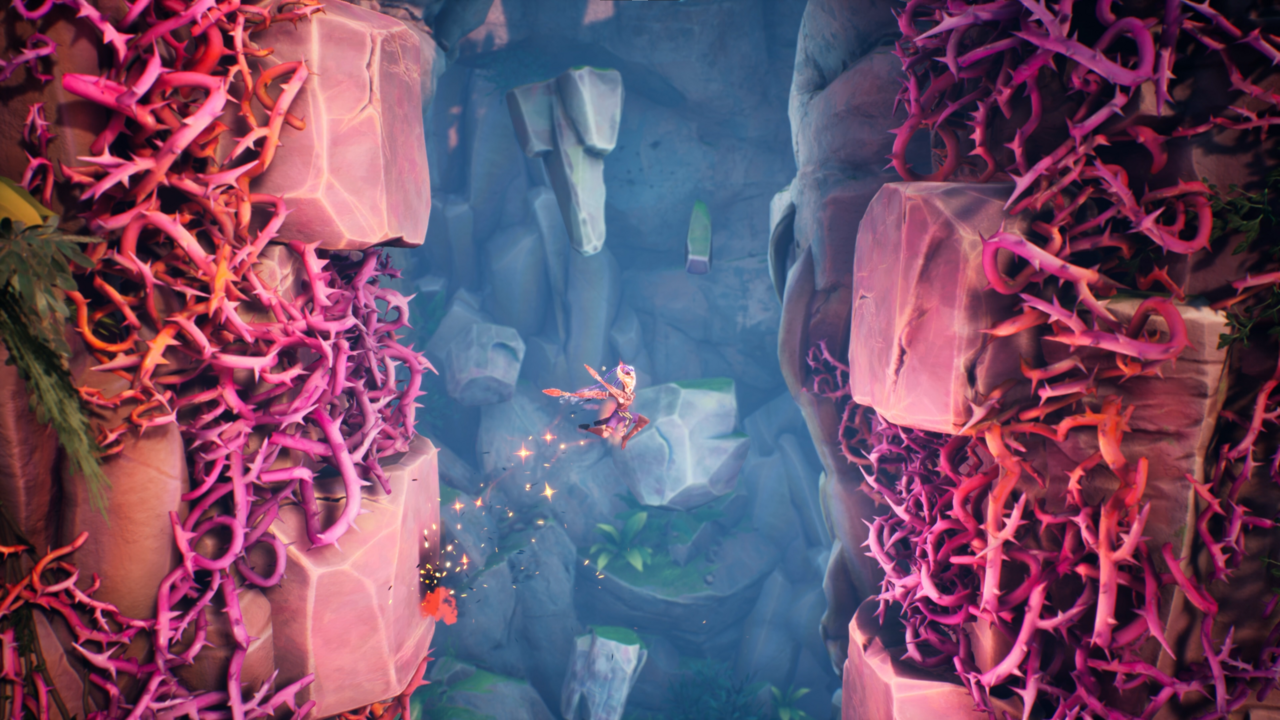
Do you see a relationship between your own feelings about work and the meaning and purpose of protagonists in your game? Does it feel dissonant? A fantasy of purpose?
In the sense with this kind of work, and where I'm going with it, I think ultimately, again, it's a form of expression and everything that I do is really an expressive act. If I'm either on House of the Dragon, Assassin's Creed, or this, for example, I am expressing a side. I'll put it this way: I've learned a hell of a lot about myself during this whole process of the work, and I wouldn't have if it wasn't so personal. And I think, ultimately by being personal and being vulnerable, it has allowed me to truly be honest, not only with myself, but with the audience, and kind of bear that all. And that's the best you can do. That's truly the best you can do is be honest and be truthful.
That's all that any of us can do as storytellers, right? As someone who does a lot of writing and GMing for tabletop games and is a creator in that space, I relate to that. It is such a learning experience to create something where you're like, "Part of this is for me, yes, but part of this is for the players too so they can get their own interpretation from it."
See, that's the beauty of it. Because I'm a big tabletop guy as well--Dungeons and Dragons, Blades in the Dark, that kind thing--and that's why Critical Role is also helping us on this. And from that perspective, really, truly, you come in with this plan, this idea of this journey that you're going to take these players on, but you have no idea what they'll do or take away.
That's the fun of it, and I think that's the thing: Ultimately, all you can do is you can bring a sense of yourself, and a sense of what you want to think is fun and explore that. But you've got to give space for other people to also share in that element and play in that. And I think that's what's exciting about games, is it's not a single thing. Even in single-player games, you are technically playing with a GM to achieve. And I think that's what I quite enjoy about the beauty of elements that metroidvania games bring. You'd kind of throw the player in and say, "Are you going to go left or right?" And then you see what happens. And I think that's enticing to us, especially in regards to [the narrative theme of] grief. You're hit with it and it's like, all right, now what are you going to do? Are you going to keep pushing through or go back? The world is your oyster. I think that's the thing, and that's the one thing that I've tried to really try and capture in the game, and really kind of play with that with the team as well.

How is that story and those narrative themes imparted to the player? Solely through cutscenes? Aspects of gameplay? Is it spoon-fed to the player? Kept hidden?
So we've aimed and strived for a balance, and that's truthful in regards to how, again, we wanted to play this game. We didn't want to hold the hand of the player too much, but we also wanted to give them the option of diving deeper into the world as a whole and give them a sense that there is a story here and there's a direction that we want to go, but it's not necessarily...we are not curing grief. We are simply presenting a perspective. And I think, depending on how deeply the player wants to go into that perspective, interacting with the collectibles, and elements and all this sort of stuff is part and parcel of it all. It all flavors it. But that is, again, your choice. And I think that is something that we really were keen on pushing forward with our game.
We've been really careful in regards to linking as much as we can of the game, and the mechanics and everything really, essentially to what it means to go on this journey from a young boy to a young man, from a grieving person to someone who can kind of manage it. That's been key for us to explore and expand on.
Speaking again to your tabletop background, when a player--especially in a D&D campaign--asks the Game Master to be connected to a god or otherworldly patron, it can be such a boon. It's a way for the GM to secretly guide that player and keep the story on track. Is that the role of Kalunga, God of Death, in this game? What's the relationship like between him and Zau?
That's essentially what Kalunga is. Kalunga acts as a guiding force and a sense of trying to give the player an idea, or Zau essentially, an idea of this path. We have set this quest that Zau is on to bring his father back. And you can find the poem in the game that I had written, which essentially explores this idea of you having to send these three great spirits themselves to the realm of the dead in exchange for whatever wish you want.
And that's essentially where Zau's drive is. And I think the God of Death is there almost to act as witness to this kind of act as a whole, as it goes along. But as I say, this story is a story within a story. Really, truly, you are following a young boy who's been gifted this book from his late father, who was a writer, and he's going on this journey with him. And I think there is something there, and that's part of the whole mystery of it all. Like why [did we pick] the God of Death? You know what I mean? It's like, "What?" That's a part of [the story] as well. And that's part of the fun of it all because, again, the thing about Bantu myths and all these different cultural gods within African cultures is that there are so many [gods] that are so cool. There are so many to play with. But there was something about Kalunga and the way that Kalunga is depicted in a lot of Bantu stories that, to me, was really enticing. Kalunga is not only a being, but they're also a place--very much like Hades--and so what does that mean? And I think there's so much to play with and mine there, and I think that's something that I wanted to dive into with Kalunga.
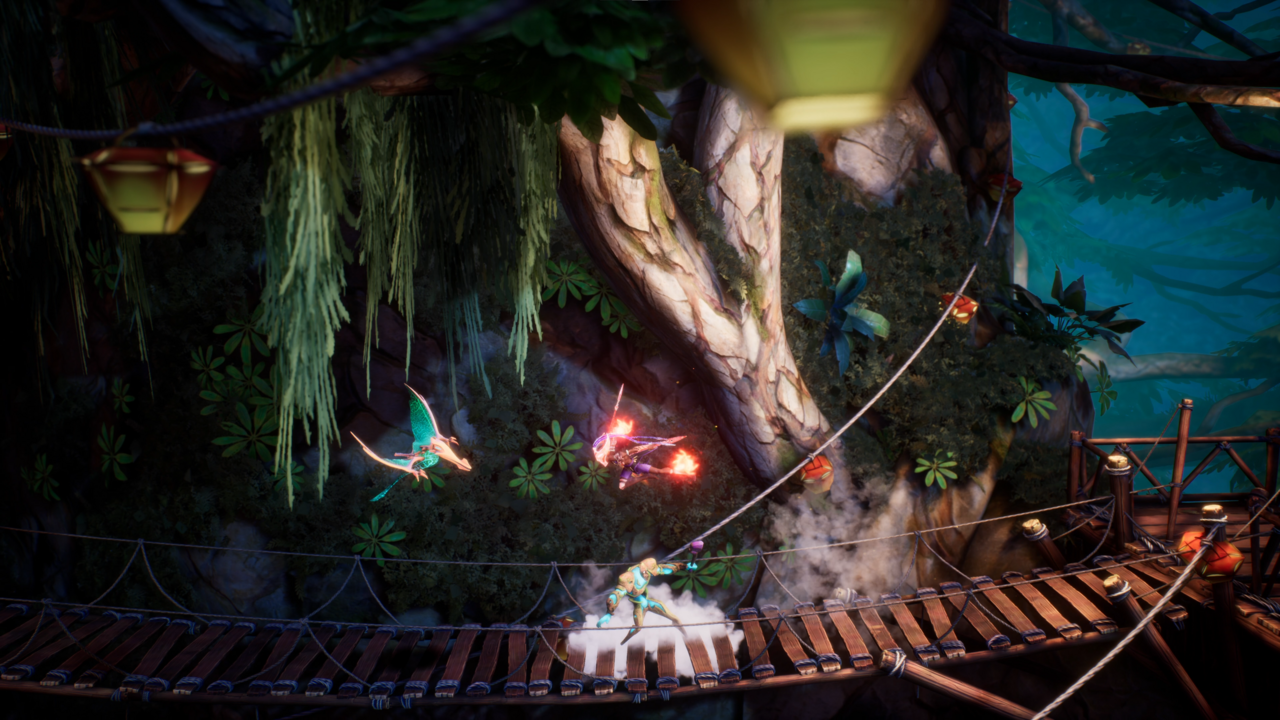
In most metroidvania games, the protagonist traditionally solves their issues by fighting enemies--killing bosses is usually the go-to way to mark player progression. How does that dynamic play out in this game, one that delves into a journey as introspective as grief?
That was something that I was really umming and ahhing about in regards to the development of this and choosing whether we wanted things like combat in the game and fighting enemies or fighting bosses. How does that actually reflect upon that feeling or journey of grief? And I'll be honest, man, there are two sides to this. The first side is, I love video games and playing as a cool character that's able to run around and do some really cool Dragon Ball Z-esque moves.
That's something that I wanted to do and I wanted to show. But really, the combat that we've aimed for in our game and the tools that we've supplied [are] supposed to feel like a dance. When I've gone through moments of feeling angry or feeling sad or just relief, just losing myself and sometimes my emotions and letting myself go, it feels like I'm contesting with myself, contesting with that sense of self and asking, "Should I have control of my emotions or not?" There's the combat, there's the strife, and I feel like that's what I wanted to reflect in this game.
So even when you look at the two masks, for example, you can switch between them on the fly. Now, sometimes it can be chaotic if you're a player who's just going to button mash and do what you're going to do, and it still works, but at the same time, you can also find a rhythm to it and master the scene as you go along. And as you get new abilities, you can play with these new abilities. That's the one thing that I love about games like Devil May Cry, or even Final Fantasy 16 right now, the fact is that it is a chaotic mess, only if you mash, but if you really truly go into it, there is almost like a flow and a rhythm to it.
And that's something that I really wanted to capture and harness within Zau, and really harness within that space of the Dance of the Shaman, essentially, as we call it. But it's this dance between, "Am I in control or am I not? Are these enemies here to fight me or are they taking part in the dance in which I'm in?" We've got elements of juggling in there, and I feel like that juggling is just another way of being like, "I'm in control of this enemy, but it's also chaotic and frantic because someone could come up behind me and do something different." And I think that's why we've added this element of combat, because in my eyes, it's an expression, it's another expression of feeling. It is quick and easy to do. And when you do it, and you get it, and you master it, it feels great, but also you can slip up and then it's on you.
That's everything about grief as well. And that journey of it, and that feeling of emotions, man. So yeah, it has been an interesting one because I have gone through the process of thinking, "Oh, do we need combat?" But then at the same time, it's like it's part and parcel of this journey, man. You are fighting not only with yourself and your feelings, but you feel like you're fighting with the world sometimes.
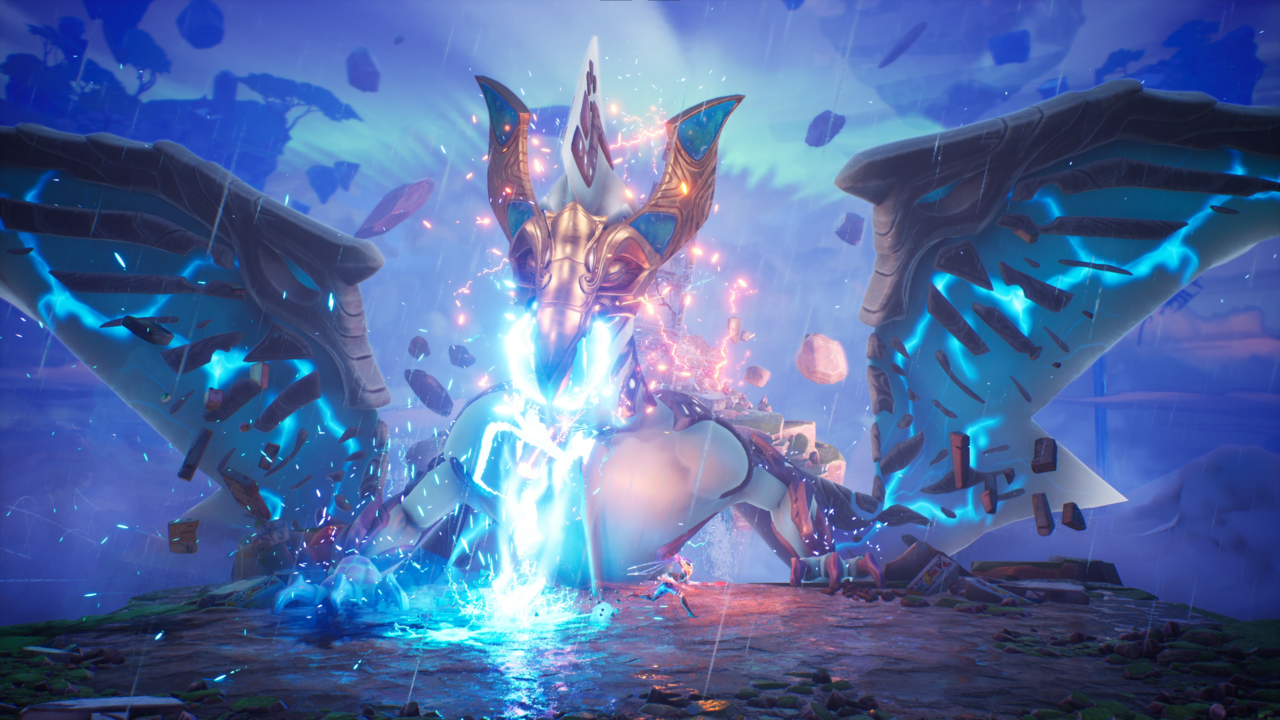
Well now that you've described the combat as "dance-like," I can bring it up. Hades is my jam. Hollow Knight is my jam. And a huge part of that is how their dance-like combat leans into their incredible soundtracks. What's the music going to be like for this game?
You want to know something? All right, listen, I'm going to tell you something really, really cool. Listen, the music is going to be freaking dope. So Nainita Desai is our composer, right? And she is a beast when it comes to the music of this game. It is authentic, it is real, it is grounded. She brings a Black Panther nature to it, but then also brings Tenet. I genuinely want that kind of vibe and beat, that kind of battle between these two sorts of elements. In the sense that for me, it's like we've got a lot of the natural elements of music that come into play. And that's in contest with some very modern sort of synth, electronic beats.
So we've got this mixture of, as I say, natural, very traditional music in regards to culturally, which is from Zau's perspective. And then you've got this almost electro-synthy mix. And they clash with one another, but at the same time, they also work with one another. And I think that's really, really dope and cool. And I actually had to get this checked with [PR] before I could tell you this: We've got the same choir who did Black Panther. They're doing the music for us as well.
No way.
I swear to you. So this is, we really went to town. And Nainita went in. And she didn't only use artists from here, she used them from all over the world: from South Africa, from Ghanaian, musicians everywhere, man. She went in. And that is another space that I'm really excited to share and give because there is such a passion and celebration in that space that it's nuts, man. Every time that Nainita would send us tracks, we'd lose our minds.
As we wrap up, is there anything you would like to add?
I think I'm just excited to get it out there, man. I'm excited for people to experience it, play it, and vibe on it. And as I say, it is very much an indie project of ours and a passion project. I think it's beautiful that EA has given us this platform to share it with the world. And I think we are just fortunate and lucky to be in the position that we're in right now.
And really, the one thing that I am hoping that players come out with at the end of this sort of experience is that people climb out and say, "Okay, you know what? It's okay not to be okay." That's kind of the vibe of it. I think that was a big tool that I learned, or found anyway, during my time with grief that helped me in regards to just taking everything in and dealing with it. And I think it's not necessarily that I've cured my grief or something, but that I've accepted it. I still feel like I am grieving, but at the same time, I feel like I'm gaining a sense of it and I'm mastering it. I've spent enough hours in this world to understand, "Okay, cool, this is what I'm doing." So yeah, man, I'm just really excited to share it.
This interview was edited for both brevity and readability.
Got a news tip or want to contact us directly? Email news@gamespot.com
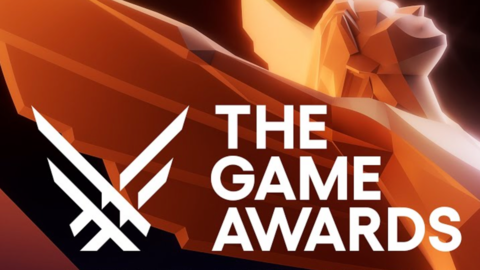
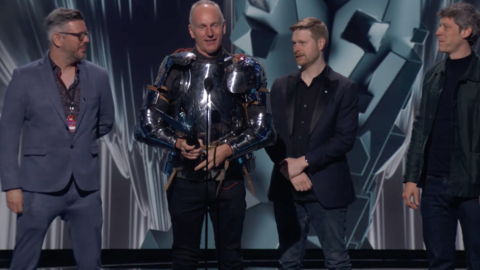
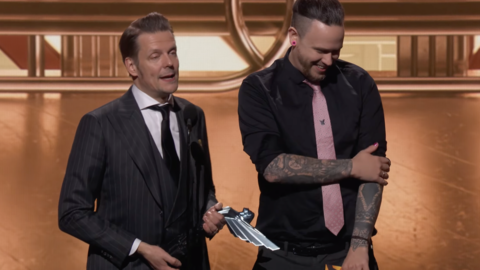
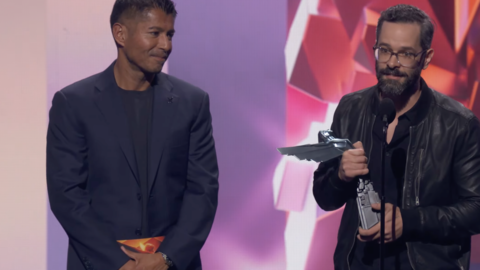


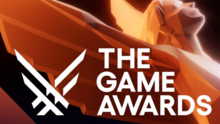
Join the conversation